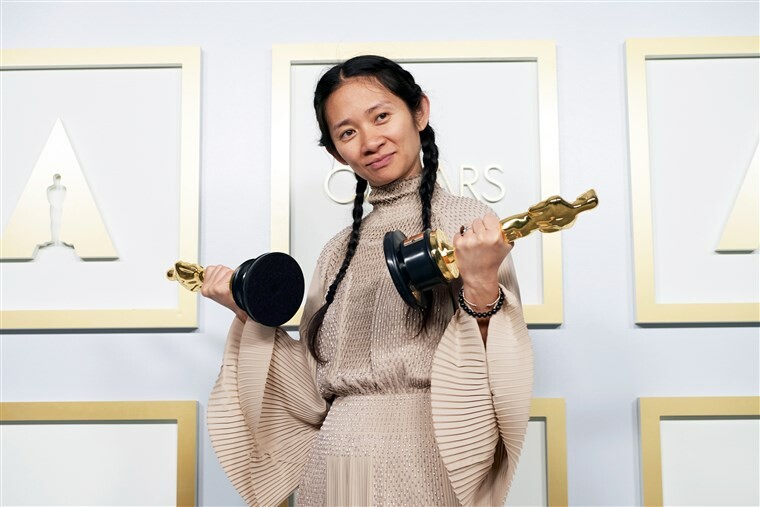Photo Credit: Matt Petit / A.M.P.A.S. via Getty Images
The 93rd edition of the Academy Awards came with plenty of surprises, ones more pleasing than others. But we’re here today to concentrate on the positive ones, to celebrate the increase of inclusivity in an industry that so often neglects it.
If you followed last night’s Oscars ceremony you may already know what we’re talking about. Chinese-born filmmaker Chloe Zhao has become the second woman, and first Asian woman, to ever win Best Director at the Academy Awards with the film Nomadland, shocking right?
Well, it shouldn’t be. Nomadland has been one of the most popular films of the last six months, winning avalanches of awards starting with the Golden Lion in Venice and, as of last night, the Academy Award for Best Picture. The movie directed by Chloe Zhao tells the story of financial instability faced by van dwellers in the United States (and much more) and has been a favourite one amongst the public and acclaimed critics for quite some time. So we couldn’t be happier about it’s success and recognition at the latest edition of the Academy Awards. It not only marks an important step in the film industry but in our current society as well, following the increasing debates regarding the recognition of the Asian minorities in the United States.
The event represented a step towards the direct direction, one that hopefully does not solely rely on tokenism but on working towards the inclusivity of women and people of different ehnitichies and cultures.
It was one of the most diverse Academy Awards ceremonies to ever take place, with an increase in the representation of both gender and ethnicity. The most admirable aspect, or shocking one for some, was that it was not limited to list nominees (as we’ve seen repeatedly in the past) but was present in the list of winners as well.
Other wins we should not take for granted, especially when considering the heterogeneous history of the Oscars, are the awards for the Best Supporting Actors. Which were won by Yuh-Jung Youn, who according to us also gave the best speech of the entire ceremony, and Daniel Kaluuya.
We are excited to see the direction which the Oscars, and the overall film industry, will follow and hope that this inclusivity will not surprise us anymore but become the norm – as it should’ve always been.
But we can remain positive for now, at least when it comes to the future of the Oscars, with the new inclusion and diversity guidelines for filmmakers announced last September by the Academy of Motion Picture Arts and Sciences – which are set to be put in place starting from 2024.
Words By Chiara Ferrari








